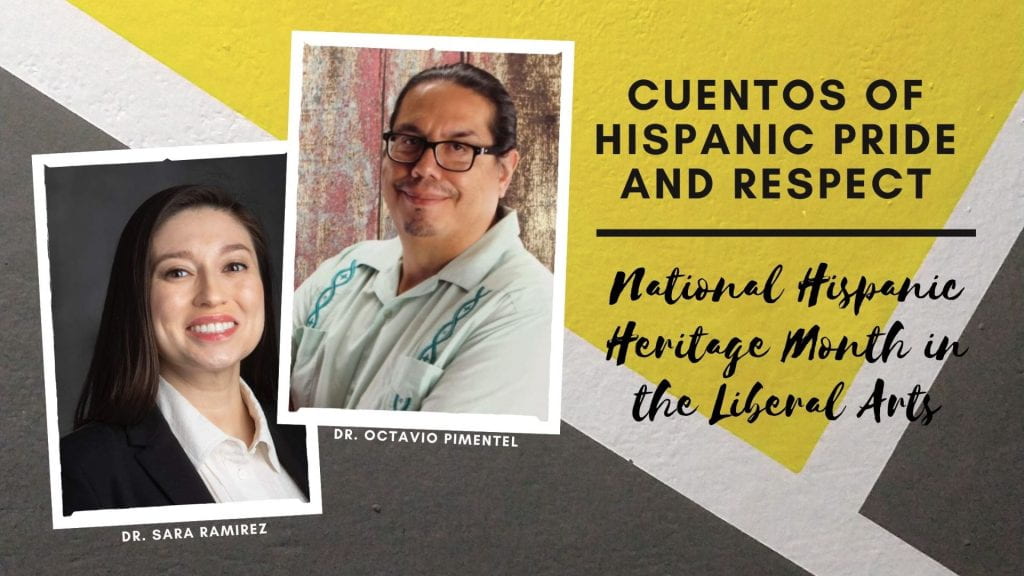
How can we work toward diversity and inclusion at Texas State University? In 2019, the Provost’s Office published a collection–Cuentos and Testimonios–that offered a few answers to this question. In the collection, Dr. Octavio Pimentel, professor of English, and Dr. Sara Ramirez, assistant professor of English, discussed how pride and respect are important answers.
In his essay, “¡No escondan el nopal! Sus raíces son obvias! (Don’t Attempt to hide your Latinx Ethnicity! Your Ethnicity is Obvious),” Pimentel describes how racism might discourage Hispanic students from embracing their heritage. “Within the United States there is a constant pressure to assimilate into ‘American culture’ which is narrowly defined as White European Culture (WEA).” Pimentel encourages Latinx and Chicanx students and people to resist pressure and take pride in their culture and heritage, especially in their language and names. He describes the value of families who teach Spanish as the first language of their children and who choose names from Spanish and indigenous descent. “[T]they have a strong Mexican identity network, and thus it is not surprising that these children are proudly aware of their ethnicity. It must also be noted that none of these children, including my own, are embarrassed or ashamed of the overlaying ‘American culture’ that blankets them.” Ultimately, Pimentel recommends requiring learning multiple languages for all in order to help increase cultural competency: “[I]t is well supported that language is often connected to culture; thus if a language is accepted, it is likely the acceptance of the culture will follow.”
In her essay, “A Call for Anti-Discrimination: Embracing Difference through Respect, Responsibility, and Reciprocity,” Ramirez stresses the importance of representation at all levels of university life. She remembers her experience as an undergraduate wanting a mentor who shared her culture: “Throughout the course of my undergraduate career, I wished for professors who looked like me, had last names that ended with z, and could give name to our shared experiences.” She also recommends that universities act in ways that support diversity. “[W]e must encourage anti-discriminatory practices in the university as ways to actualize a society free from divisions based on race, class, sex, gender, religion, ability, and other social constructs that keep us apart.” Faculty and students alike can play a role in creating this supportive culture, and Ramirez offers advice for how to do just that. She recommends reading diverse literature, enlisting university resources such as counseling services, and respecting ” one another’s rights to teach, learn, and navigate the campus without fear of physical or psychological harm in the name of la paz.”
Both lessons are important to learn and enact, not only during National Hispanic Heritage Month but always.
